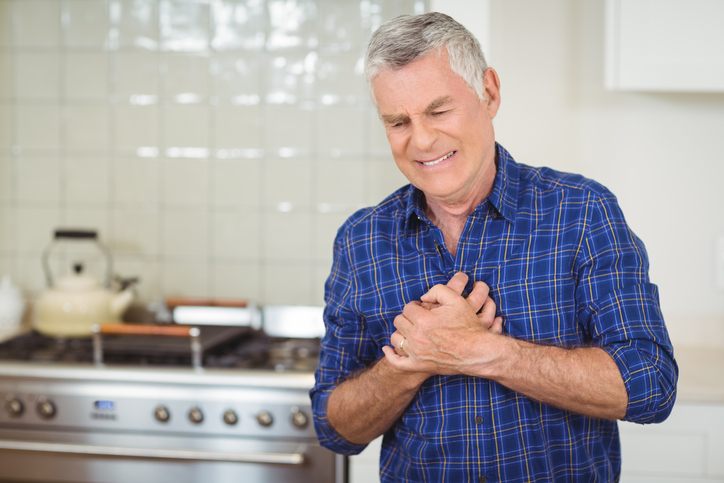
While the stores are stocked with heart-shaped everything in honor of Valentine’s Day, it’s the perfect reminder for all of us to take care of our hearts, and in particular, to be able to identify the signals of a heart attack and to know clearly what to do if we think that a senior loved one is experiencing one. Even if you’ve already educated yourself on these red flags, it’s definitely a great idea to take time for a quick refresher.
At Hearts at Home, our Overland Park home care experts are always available to share useful resources such as these to help seniors stay safe and well:
Heart Attack Red Flags
Get immediate medical attention if your senior loved one complains of any of the following:
- Chest pain or discomfort. This can come on suddenly and intensely, or involve a slow, more gradual progression. Some heart attack patients describe the feeling as a tightening up or squeezing feeling that usually lasts several minutes or more, or which recedes and then returns.
- Nausea/vomiting. Nauseous feelings can also be accompanied by lightheadedness, dizziness, and/or breaking out in a cold sweat.
- Upper body pain. Pain may radiate down the back, in one or both arms, in the stomach, and sometimes in the neck and jaw.
It’s also important to note that men and women could experience diverse heart attack warning signs. Men are more inclined to feel only chest pain and discomfort, whereas women often suffer from the other common signs noted above.
Medical director for the Joan H. Tisch Center for Women’s Health at NYU’s Langone Medical Center, Nieca Goldberg, M.D., explains, “Although men and women can experience chest pressure that feels like an elephant sitting across the chest, women can experience a heart attack without chest pressure. Instead, they may experience shortness of breath, pressure or pain in the lower chest or upper abdomen, dizziness, lightheadedness or fainting, upper back pressure or extreme fatigue.”
What to Do if a Heart Attack Is Suspected
Time is of the essence in receiving the proper treatment during and after a heart attack. It is always best to call 911 to enable faster transport to the E/R and for emergency medical staff to provide treatment along the way.
Hearts at Home can help in a variety of ways with keeping older individuals healthy and well. By partnering with our trained Overland Park home care team, a caregiver is available to keep an eye out for warning signs of a heart attack or other health concern and to seek help immediately. Our in-home care services also include preparing nutritious meals, assisting with personal care and ambulation to help avoid falls, friendly companionship, and many other tasks to improve health and wellbeing. Contact us at 913-440-4209 to take the first step in helping your senior loved one live a better quality of life, or visit our Frequently Asked Questions page to learn more.
